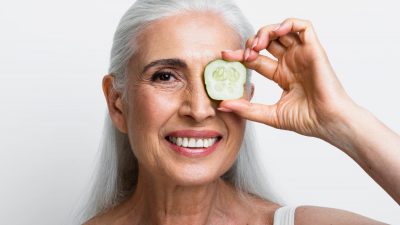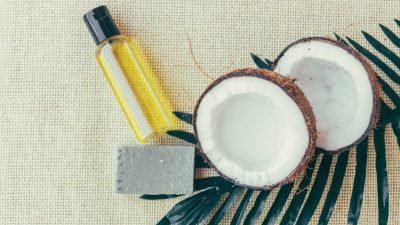“…One night in Bangkok makes a hard man humble
Not much between despair and ecstasy
One night in Bangkok and the tough guys tumble
Can’t be too careful with your company
I can feel the devil walking next to me…”
These lyrics are taken from the song “One Night in Bangkok” in Tim Rice’s famous 1986 West End musical “Chess”. Further on in the song, the American denounces Bangkok and its ‘muddy river’, ‘red-light district’ and ‘reclining Buddha’. However, Thailand is commonly known as ‘The Land of Smiles’ , reportedly because of their friendly, happy-go-lucky and cheerful people who will smile back at you when you smile at them when passing them in the streets of Thailand.
Is this the travel brochure image of this constitutional monarchy boasting the longest ruling monarch in the world, with its racy nightlife, beautiful blue oceans and tranquil beaches lined with palm trees and does the country have another, dark side to it, possibly linked to the Thai’s national pride? Why do tourists die in Thailand every year? Are these figures significant when compared to other countries or can these deaths perhaps be attributed to a ‘clash of cultures’, especially when ‘West’ meets ‘East’, resulting in perceived and unintended disrespect? What is the role of political unrest in this ancient country, the only one in South-East Asia to have remained independent and never formally occupied and/or designated as a territory by a foreign power?
These are questions that don’t have easy or straightforward answers as news about tourist deaths, in Thailand has spread like wildfire, leading to speculation that a deep seated hatred of foreigners lies at the heart of these deaths and that it is the result of the country being one of the number one tourist destinations for so many years.
Going on an overseas trip has often been equated to obtaining a tertiary qualification from an institution of higher learning. The reason for this is that you learn as you try to understand a different language, currency, culture and way of doing things. The key to any overseas visit is proper and in-depth research before you leave and, when you are there, in the words of the Thailand Authority on Tourism (TAT), “exercise common sense and courtesy, be considerate and respect local culture when travelling abroad to ensure a problem-free and rewarding holiday.”
Does this statement mean that you are only ‘at risk’ of dying as a tourist (in Thailand) when you misbehave? Equally to this question, there is no straightforward answer, as the devil is often in the detail and mass media thrive on sensation as a means to sell more newspapers, books, magazines, etc. A country is the sum of all its parts: its culture, its language and its people and should be both judged and appreciated as such. A brief look into Thai culture as well as the Thais’ view of people could offer some explanation on why things in Thailand sometimes work out differently…
‘The three circles’
Trip Advisor is a popular website that tourists often consult when they want to know more about a country or destination before visiting. Their information on Thailand – especially Thai people’s view on and treatment of ‘other people’ – is very valuable and could possibly offer some explanation on why the best laid plans of mice and men can go awry in Thailand, the setting of “The King and I” and once known as Siam, the oldest Bronze Age civilisation. Today, Thailand is a member of the United Nations and a leading industrial power in Asia producing 20% of the world’s total rice supply.
In Thai culture, people are viewed as humans fitting into one of three circles.
- Close relations (friends, family and colleagues) that you interact with daily on a personal basis, belong to the first circle.
- In the second circle you will find neighbours, customers in a shop and business associates – those that are in your close environment. Anyone of these can pose a danger; therefore act politely and friendly towards them, smile when you meet them.
- The third circle is home to unknown strangers: short-term acquaintances you meet only once. The individuals in this circle cannot be trusted; they can be manipulated as much as one can get away with.
Different perceptions
Other aspects of Thai culture to be considered include that the Thais would rather give an incorrect answer than risk appearing ignorant. A foreigner’s perception of being ‘ripped off’ while shopping is completely different to that of the Thai salesman (the item is worth whatever he can make the customer pay for it) and the same goes for taxi drivers ‘overcharging’ passengers (he is practicing his livelihood and doing it well). The Royal Thai Police, when called out to the scene of an incident or crime, expect to be paid for their presence and they are likely to believe the Thai person’s version of events rather than that of the other party (especially if the party is a foreigner).
Being a constitutional monarchy, the King and the Royal Family are highly regarded and pictures and photographs of His Majesty and the Royal Family can be seen everywhere. The image of the King appears on all Thai currency, so take care when handling it (don’t ever step on a coin that’s rolling away – feet are regarded as dirty and ‘low’ by the Thai) and don’t act disrespectfully or say anything that could offend His Majesty or a member of the Royal Family. The King, who has reigned continuously for more than 63 years, is the longest reigning monarch in the world and a jazz musician and composer of note. He has recorded a number of albums, all of which enjoy international recognition.
The ‘other side’ of Thailand
“Never spoil a good story with facts” it is often said. Is there really another, darker side to Thailand or has its presence been exaggerated by sensation-seeking mass media seeking to lure readers to their pages? Maybe, as in any country, there are areas where tourists should tread carefully, maybe avoid going to these areas? You decide…
On the nightlife in especially Bangkok, Wikipedia writes: “The once sleazy image of Bangkok at night has been virtually eradicated over the last 30 years. Even unescorted women can enjoy Bangkok safely and without any problems”.
Huffington Post, reporting on the mysterious death of two Canadian sisters in their rented bungalow on “an idyllic Thai island, believed poisoned”, and the incident in which a 60-year old Australian woman was stabbed to death following a botched robbery outside a luxury resort in Phuket”, uses phrases such as ‘taxi driver mafias’, ‘transvestite thieves’, ‘tourist brawls’ as well as ‘pollution’ and ‘traffic accidents’ as examples of phrases often used to describe Phuket. A well-known travel guide, on the other hand, describes Phuket as “one of the world’s most famous dream destinations”… Huffington Post further states that Thailand has the highest US tourist road fatality rate in the developing world after Honduras. The British foreign office, it says, warns of robberies and ‘vicious, unprovoked attacks’ on Koh Phangan, also known as the party island…
Then there’s Pattaya, just 2 hours’ drive from Bangkok, where sleaze accompanies red-light entertainment, crime and uncontrolled development, described by the Huffington Post as ‘Sin City’, the place that controversial Australian Gold Goast gangster and loan shark, Tim ‘Sharky’ Ward, also calls home…
Tourist deaths that shocked the world in 2014
US tourist’s genitals surgically removed
According to the UK Daily Mail, large male genitals are considered a powerful aphrodisiac in Thailand when eaten as food. As a result, these fetch high prices on the Asian black market and there is a wave of “criminal surgical aggressions” against tourists.
A case in point is that of one Josh Brown (58), a US tourist who woke up in excruciating pain and a pool of blood in a Bangkok hotel only to notice that his genitals had been removed during what seems to have been a drug-induced sleep. Fortunately for Josh, the hotel responded to his distress call and he was transported to the Bangkok Hospital where he underwent life-saving emergency surgery.
Thai authorities, the Daily Mail states in the same report, “warn tourists to be very conscious when travelling alone and meeting ‘friendly’ strangers in the streets of Bangkok”.
British couple ‘bludgeoned to death’ on beach
Hannah Witheridge and David Miller were wandering on the beach outside the AC Nightclub when they were “bludgeoned to death in the early hours of Monday”, reports The Mirror in the UK on 20 September 2014. According to the same report in The Mirror, A bloodied garden hoe was found close to the scene, but that according to police a second weapon could have been used. It is claimed that David tried to save Hannah from her attacker, also that there may have been a row earlier in the evening with a local gangster who was trying to chat Hannah up.
On the silence of the local population about this incident, The Mirror reports: “There is a real underbelly on this island and no one is talking. People are afraid.” Also in the report, the Thai Prime Minister, Prayut Chan-ocha, is quoted as demanding fast action on tourist safety, saying that Thailand has “no future” if further incidents occur.
“Tourism boom has created hatred and contempt for foreigners” – Australian author and journalist who lived in Thailand
Death among tourists in Thailand, says John Stapleton – an Australian author and journalist who moved to Thailand in 2010 – “is the worst scandal in the annals of modern tourism”. Life in Thailand is cheap with deaths of foreigners often going unrecorded and unlamented while widespread police corruption, violence and crime leave a blemish on this beautiful country once called “The Land of Smiles”, he says.
After spending a lot of time interacting with the Thais, John says he now understands that they “actively dislike foreigners, have no compunction in robbing them” and that “their cultural distaste for foreigners and ultra-nationalistic pride in their own country rules and justifies the crimes against tourists.” In his book he says that phrases such as “Mai Chop Farang” (I don’t like foreigners) and “Thailand is for Thais” is often heard across Thailand. “Mishaps don’t befall only those who misbehave”, says John .
While Thai tourist authorities dismiss the claims made in his book as ‘exaggerated’, John says tourist deaths in Thailand is already having a negative impact on tourist figures, as more than 2 million fewer tourists visited Thailand in the first nine months of this year, compared to the same period last year. He says this has forced Thai tourism authorities to adjust their initial forecast of the number of tourists expected to visit Thailand in 2015 downwards to 25.5 million from an initial forecast of 30.27 million visitors expected.
John started investigating news reports on the welfare of tourists in Thailand after being repeatedly robbed and attacked. He claims that the welfare of tourists in Thailand is “scandalous” and that police are not really interested in helping foreigners who report crimes, especially when such incidents take place at a bar or (night)club, as owners pay the police to keep their doors open.
In his book, titled Thailand: Deadly Destination, to be released towards the end of November, John says that passports disappear after being given as collateral for renting bikes, cars and jetskis (a requirement at Thai rental services). These passports, he claims, are stolen and sold on the Black markets, where European, American, Australian and Canadian passports attract the highest prices. “Many tourists – both those who come for a short stay and those that stay longer – from Europe, USA, Australia, India and the Middle East leave Thailand “aimpoverished, distressed, frightened and unlikely to return. That is if they leave at all, as accidental deaths of tourists is a common occurrence”, John says in his book.
He quotes statistics of the deaths of British tourists in Thailand in particular, pointing out that between 2011 and 2012, a total of 296 British tourists died. In the 12 months leading up to 1 April 2013 389 British tourists died and in the same period in 2014, a total of 362 British tourists died in Thailand, while 267 were hospitalised. John says that unprovoked attacks often occur at night and near bars in Koh Samui, Koh Phangan and Koh Tao (the Samui archipelago).
The curious case of loan shark Tim ‘Sharky’ Ward
He is not suspected of killing any tourists, but self-admitted gangster-cum-mafia character Tim ‘Sharky’ Ward has called Thailand (Pattaya) home since 2009. Mentioned earlier in this article, this coastal resort is famous as a hub of prostitution and a popular destination for sex tourists. Tourists considering Thailand as a destination could be forgiven for raising ‘red flags’ and reconsidering a visit to Thailand when they learn more about this iconic character, who once ruled the Australian Gold Coast as a loan shark and earning himself the nickname ‘The Gold Coast King’, often seen posing with prostitutes at his apartment in ‘Sin City’…
He earned the nickname of ‘Sharky’ already as a child spending his childhood in pool halls hustling for money at tables. The irony of this nickname would only become apparent much later in his life, when he became a loan shark of note in Australia.
As a result of his online presence, Tim ‘Sharky’ Ward (48) has become a somewhat larger-than-life icon with an online following bordering on celebrity status, almost the modern day alpha male. By his own admission he went “From broke-ass street kid to the richest gangster on the Gold Coast, I hustled my way to the top by not giving a f***!” A heavyweight in any term (he weighs around 130 kg) spending many hours in the gym since the age of 16 and sporting a body covered in Maori-type tattoos, including one on his shoulder of a shark holding money, ‘Sharky’ is often seen feeding dogs and coaching young boys on the best way to get that perfectly sculpted body, sans steroids, which he sternly warns them to avoid. As a result of this, and him often spotted feeding stray dogs, he has also been called a ‘Gentle Giant’. He says protecting the most vulnerable in society comes naturally to him, following him being an outcast and living on the streets as a child.
As a provider of unsecured loans in Australia, Tim’s interest rates, which varied from 156% to 208% per year and as much as 360% for late payments, saw him at loggerheads with Australian authorities and paying a $270.000 fine because his loan practices did not comply with Australian law. His loans were the answer to the calls of the desperate, helping them to sustain their drug habits. It is also suspected that, at times, the loans even went towards helping the drug dealers themselves…
He became well known for his flashy lifestyle – at one time he owned three Lamborghini’s – until his assets were seized during a court case. It is said that he still owns a property, as well as a few nightclubs, in Australia and there is widespread speculation about his involvement in the underworld and some well-known mafia figures.
Looking at the headlines, Tim ‘Sharky’ Ward has definitely made his presence known in Thailand, but as usual for dubious reasons. “Pattaya Police Opens Case On Tim Sharky” and “Tim Sharky Set Up And Arrested In Thai Police Drugs Raid” are only a few of these, with a video showing him storming the Pattaya Police Station – no mean feat for anyone in Thailand, let alone a foreigner, it is said.
As explained earlier, Thailand has enjoyed unprecedented independence of any foreign interference for many years. Against this background, on-going political unrest in Thailand over the last year could contribute its fair share not only to accidental deaths among tourists, but also to the decline in the number of tourists visiting Thailand this year. As usual, the devil is in the detail and all reports –whether negative or positive – about any country and in particular about a possible ‘other side’ of Thailand, should be evaluated against this background.
If you have after reading this decided to visit Thailand, heed the words of the Tourism Authority of Thailand (TAT) expressed elsewhere in this article as you join the audience in one of the many theatres packed to capacity and share in the laughs, music and dance of the Thai cabaret scene at its best. The most convincing transgendered and transvestite performers in the world, known as ‘Ladyboys’, are the main attraction. Sadly, ‘Ladyboys’ are rarely accepted in society and the suicide rate among them is higher than the national average…
Website Trip Advisor has the final word in saying that, even though the explanation of the ‘three circles’ as the way Thais perceive, classify and treat all people is overly simplified, it still holds a lot of truth and if tourists keep this in mind, it will truly help them understand why things so often work out differently in Thailand…. So when in Thailand, do as the Thais do and keep your feet on the ground and with your head, reach for the stars!




